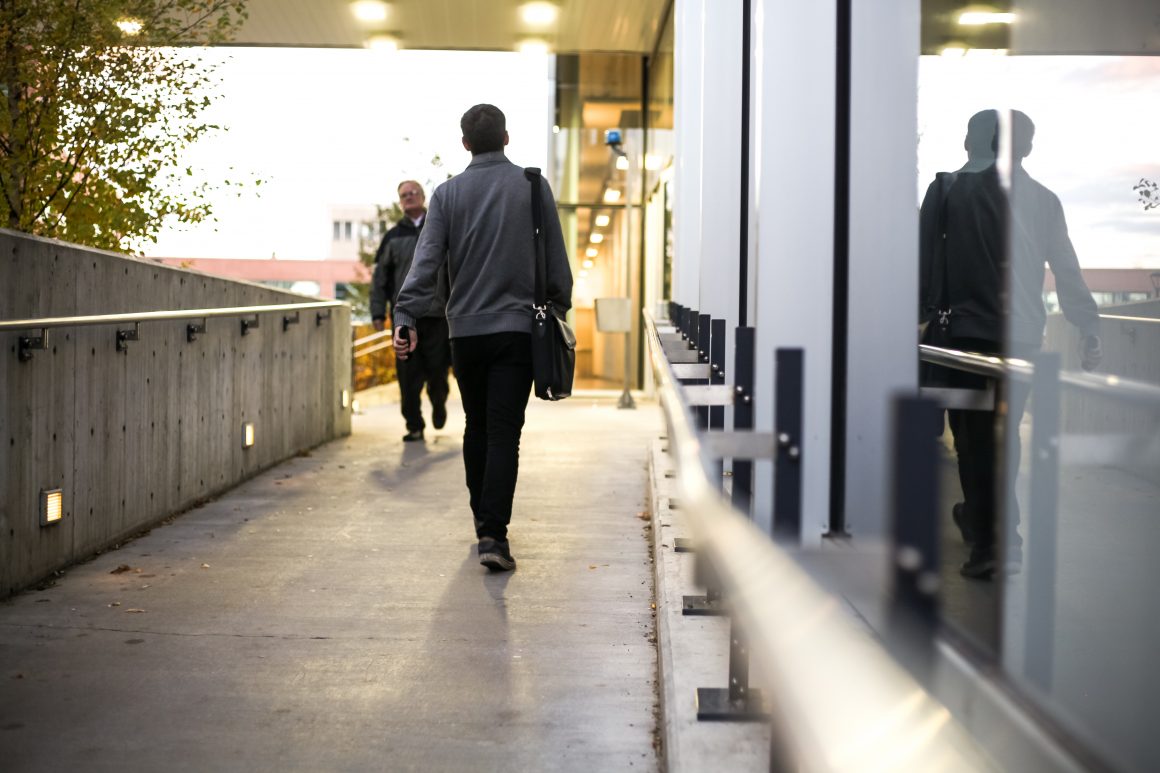
“What I Wish I Knew: Tips For Your First Semester of Grad School” session provided real student insight
By Eula Mengullo, November 14 2020—
The University of Calgary Graduate College hosted a question and answer panel in October for current and incoming graduate students.
The event was moderated by Milanpreet Kaur, PhD student in Chemistry and chair of University Committee.
The virtual Friday morning discussion welcomed five graduate students who sat as panelists.
In response to how to get started on a graduate thesis, Dana Cramer, an MA candidate in Communication and Media Studies, heavily emphasized the importance that librarians play in locating necessary resources for initiating research.
“Librarians are huge sources of knowledge and hold tons of information, they really are the treasure trove of our university and they deserve all the appreciation we can give them,” said Cramer.
Harrison Campbell, a PhD student specializing in Curriculum and Learning, also referred to workshops being offered by faculties as helpful tools in deciding on research questions.
The panelists collectively highlighted the importance of student engagement on campus. Whether it be through volunteering, attending workshops and events, or club memberships, they emphasized the significance that this plays in building meaningful connections.
While they also recognize that taking up extracurriculars can be hectic, Kaur remarked that it is ultimately beneficial for learning new things and meeting a variety of different people.
In light of COVID-19 restrictions, some panelists described the importance of utilizing social media to maintain communication with their cohorts given the current learning environment. The use of discord channels and communication apps like WhatsApp were some of the resources panelists suggested as effective tools in engaging with their peers.
When asked how the global pandemic has affected their research studies, Jen Sidorova, PhD candidate in Political Science, said that the biggest challenge for her is that “the libraries are closed and a lot of resources are not available online.”
She noted that it is also difficult to work at home due to many sources of distraction, but asking for access to an office is a good solution to maintain a healthy working environment. While some panelists who are currently holding a Teaching Assistant position expressed that working online had saved them hours by not having to commute or run to their office, some also mentioned that marking assignments virtually has been tedious and required longer work hours.
With regards to managing TA positions, Leanne Dawson, PhD student in Electrical Engineering, described that although it is almost mandatory, she recommends making the most of it for the experience. Cramer also recommended that if students are concerned about being a first-time TA, the Taylor Institute offers courses on how to be effective, as well as manage the workload it entails.
In response to the question of overcoming accent barriers for first-time TAs, some panelists recommended joining an on-campus club that could help improve public speaking skills and communication. While it may remain a concern for some, Isabela Fandino, MA student in Sociology, said that “an accent is […] a badge of honour” and is not something to be ashamed of. She also remarked on how the diverse environment of UCalgary helps in promoting communication skills that transcends accent barriers.
Another theme of discussion was the importance of maintaining students’ well-being, both mentally and academically. Sidorova described how she discovered the importance of physical activity as well as different strategies for dealing with stress and anxiety.
Kaur also acknowledged how being mentally healthy is the foundation for producing quality academic work and urges students to take their mental health seriously.
The panelists cited a few wellness resources to help students who are struggling with their studies. Supervisors, Graduate Program Directors, the Student Success Centre, Graduate Students’ Association (GSA) workshops, were some of the recommendations for students who are seeking academic assistance. Furthermore, Campbell also mentioned that the Wellness Centre can connect students to other services around the city that are available twenty-four hours a day. As for more personal issues, students are also encouraged to visit Mental Health services on campus.
